Whether you volunteer to pick up litter or regularly tackle the clutter in your own part of the world (hello, long-neglected garage and junk drawers!), you may be interested in knowing what items should be thrown away and which should be recycled. Because it’s not just about knowing what to recycle, but how to recycle properly, that truly helps the planet.
Check out this guide on how to recycle everything from batteries and electronics to the many different types of plastics, and learn where you can bring items that can’t be recycled curbside.
Why Is Recycling So Important?
Recycling helps create jobs, supports American manufacturing and increases economic security, according to the Environmental Protection Agency. It also reduces the amount of waste sent to landfills and incinerators – saving municipalities money on the tipping fees paid to landfills – conserves natural resources (such as timber, water and minerals) and prevents pollution by reducing the need to collect new raw materials.
How To Recycle Properly
There are many ways to deal with recyclables, including curbside collection services, deposit or refund programs and local drop-off centers.
Knowing how to recycle properly – that is, knowing what you can and can’t recycle and where to take items that can’t be recycled curbside, will help get you started. Here are some basic guidelines and local resources to ensure you’re recycling correctly.
Paper and Cardboard
Paper makes up 23% of municipal solid waste generated each year, more than any other material, according to the EPA. In order to be recycled, paper and cardboard should be clean (so no soiled food containers). Tape, staples and any bits of plastic should be removed if possible.
So, can you recycle pizza boxes? Pizza boxes can be recycled if they do not contain any food waste. You might think that disqualifies any box that has been used, but you can still recycle boxes that have grease stains on them. Just make sure that there aren’t any food scraps left behind. You should also collapse the box before recycling.
Aluminum
“Aluminum is one of the most recycled – and most recyclable – materials on the market today,” according to The Aluminum Association. “Nearly 75% of all aluminum produced in the U.S. is still in use.”
Aluminum food and beverage cans are almost always accepted by curbside and municipal collections. Simply rinse and toss them in your recycling bin or take them to a community drop-off center.
Batteries
Batteries are an item that many people are unsure of how to recycle properly. “Certain batteries should not go in household garbage or recycling bins,” according to the EPA. These include button-cell, coin or lithium single-use batteries, which should instead be taken to a special recycling facility.
While used or “dead” alkaline and zinc-carbon batteries – think 9-volt, AA, AAA, C and D – are often thrown away, you should send them to battery recyclers and/or check with your local or state solid waste authority, according to the EPA.
When it comes to lithium-ion batteries, the EPA recommends taping over battery terminals and/or placing batteries in separate plastic bags.
Did you know AAA recycles car batteries? Learn more.
Electronics
“Electronic products are made from valuable resources and materials, including metals, plastics and glass, all of which require energy to mine and manufacture,” according to the EPA.
As such, electronics – like laptops, TVs, cellphones, etc. – should be taken to a SERI- certified electronics recycling facility. Some states and municipalities hold special e-scrap waste collection events; check the state resources below for more information.
If you have an old phone that still works, consider putting your old phone to good use rather than throwing it away.
Glass
Some recycling collectors want glass separated by color – blue, brown, clear, green, etc. – while others no longer accept glass. If the latter is the case in your area, try to buy fewer products packaged in glass, make sure to reuse glass bottles and/or save recyclable glass for special collection events – like National CleanUp Day.
Check out what happens to your car windshield after it’s been replaced.
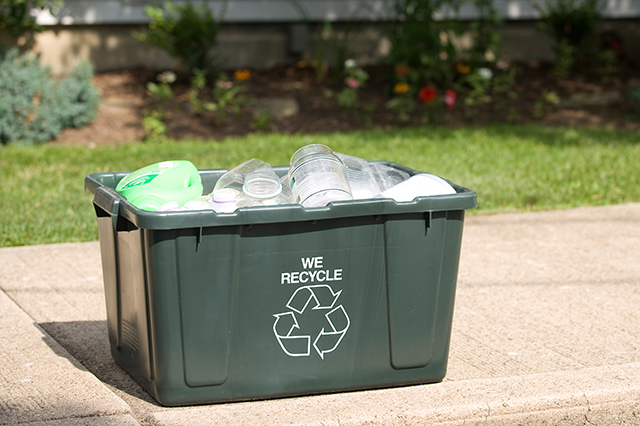
Hazardous Waste
Hazardous waste should never be thrown away with regular garbage or poured down the drain or on the ground. Household items like paint, solvents, thermometers and fluorescent lights, motor oil and pesticides are considered hazardous waste.
As with e-waste, many states and municipalities hold special events to collect such waste. Local businesses that sell the products will sometimes accept them for recycling.
Oil
The used oil from one oil change can contaminate one million gallons of fresh water if disposed of improperly, according to the EPA. Used motor oil should be treated similar to hazardous waste – never dumped down the drain. Many garages and auto-supply stores accept oil for recycling. Learn more.
How to Recycle Plastic Properly
You may see the recycling symbol on the bottom of a plastic container and assume it’s 100% recyclable – but there is some nuance.
Only plastics with the numbers “1” and “2” in the middle of the recycling symbol are widely recyclable. Plastics with the numbers “3” through “7” may not be – although “5” is becoming more accepted. This helpful guide from Good Housekeeping breaks down the meaning of every plastic recycling symbol and how to recycle each.
When recycling acceptable plastics, keep or remove the caps on bottles and jugs according to your local guidelines. Compostable plastics should not be placed in the recycling bin. Plastic shopping bags should not be put in your curbside recycling bin either, but they can often be returned to stores for recycling.
State Recycling Resources
• Connecticut Department of Energy and Environmental Protection
• Massachusetts Recycling Guidelines
• New Hampshire Department of Environmental Services
• New Jersey Department of Environmental Protection
• New York Department of Environmental Conservation
• Rhode Island Resource Recovery Corporation
How To Be an Informed Recycler
Recycling rules can differ among collection services. If you have questions about what is and isn’t collected where you live, reach out to your county, city, community or town.
Generally, items like plastic and metal utensils, plastic bags, Styrofoam and plastic wraps are not accepted by curbside recycling services – but it doesn’t hurt to double-check.
Don’t “Wish-Cycle”
Resist the urge to recycle everything, since not all products are recyclable. Trying to recycle items that should be trashed can actually contaminate and slow the sorting process.
Make Less Waste
Be mindful of your purchasing and consuming habits. In stores, go for items with the least amount of packaging and only buy goods in containers you know you can recycle. Check the bottoms of plastic containers to make sure they’re easily recyclable (numbered “1” or “2”).
Avoid single-use plastics like straws, soda bottles and food packaging. Instead, consider switching to reusable bags, bottles, containers and straws. When ordering goods online, opt for greener packaging options.
Are you a thoughtful recycler? Let us know in the comments below.
This article has been updated and republished from a previous version.
28 Thoughts on “Can You Recycle Pizza Boxes? And Other Recycling Tips”
Leave A Comment
Comments are subject to moderation and may or may not be published at the editor’s discretion. Only comments that are relevant to the article and add value to the Your AAA community will be considered. Comments may be edited for clarity and length.



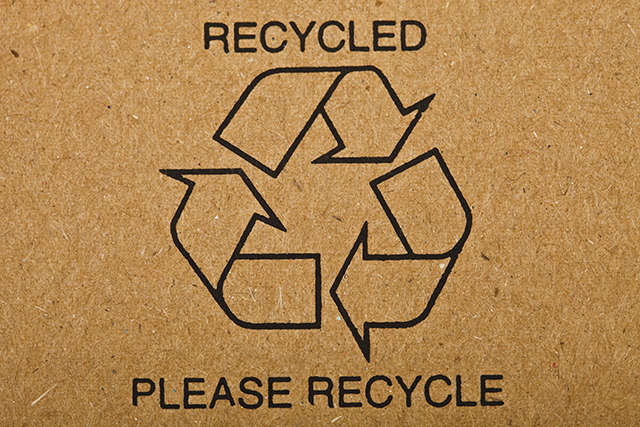



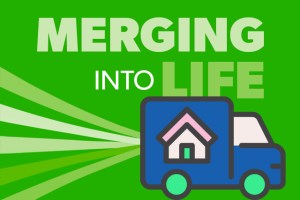
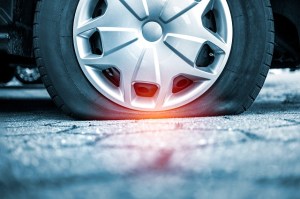


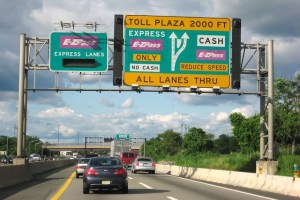



I still notice folks who have their newspapers delivered each day. A more environmental friendly version, which also is likely less expensive, would be to get their daily news from that newspaper electronically.
Does the AAA have a program to recycle outdated AAA tour books or other old travel guides?
Hi there!
What a great question! We don’t currently have such a program, but we’ve shared your idea with our branch team and will let you know if we start a TourBook recycling initiative.
In the meantime, you may want to look into your municipal recycling requirements to find out how to properly recycle any old travel guides you may have.
Thanks for reading!
-Dana L.
With so much e-commerce these days, I bring my cardboard shipping boxes to a local shipping store where they are re-used by other customers. I’m sure the big chain sites (i.e. the UPS Store, etc) would frown upon the idea, but the local independent shop can do their own thing. I love the re-use concept and my guy’s customers like not having to purchase a box. Win-Win!
Please emphasize that materials that can be recycled also needs to be rinsed/cleaned of the residual food item. The cleaner the materials the easier to recycle. Recycle bins should not be treated like alternate trash bins.
How about textiles? I’ve brought old towels and blankets to animal shelters, but don’t know what to do with old clothes that are stained or ripped and therefore not good candidates for donating.
Hi, Karen. You can try recycling old clothes through the American Textile Recycling Service (http://atrscorp.com/services/) or H&M’s upcycling/recycling initiative (https://hmgroup.com/sustainability/circular-and-climate-positive/recycling/)
Otherwise, old clothes can be repurposed by cutting them up and using them as cleaning rags, for crafts or as patches. Clothing that’s 100% cotton can be composted.
For over 35 years, we have brought our own leftover containers to restaurants so as to avoid the waste from Styrofoam, aluminum, paper, etc. We use a 12 can insulated case and 1 quart containers – some reused from supermarket purchases. We’ve had success getting the insulated case from Walmart in their camping department. And we get to take home all we choose and it fits in the refrigerator better than the restaurant options!
We are conscientious recyclers and we always have leftovers but I have NEVER thought about bringing my own containers to a restaurant. This is a terrific idea for many reasons. First and obvious, it encourages reusing what one has. Second, many restaurants still use black plastic containers which some systems can’t recycle. And third, it eliminates use of more styrofoam, another product that is difficult to recycle. Thanks for the great suggestion!
TIME IS A VERY PRECIOUS COMMODITY. PLEOPLE JUST DO NOT HAVE ENOUGH TIME. A LOT OF MONEY, WORDS, & ADVERTIZING, IS SPENT ON THE RECYCLING TOPIC. SOMEHOW IT HAS TO BE MADE EASIER TO RECYCLE AND MORE CONCRET AND SPECIFIC DETAILES OF WHAT , WHERE AND HOW TO DO IT. RECYCLING SYMBOLES ARE SO SMALL AND HARD TO FIND AND NOT ON EVERYTHING. IT IS DIFFICULT TO KNOW WHAT TO DO WITH THINGS THAT DO NOT HAVE SYMBOLS ON THEM AND WHAT TO DO WITH THEM SO THESE GO INTO THE GARBAGE. I TRY VERY HARD TO RECYCLE PROPERLY BUT IT IS NOT EVEN A LITTLE BIT EASY BECAUSE SO MAMY THINGS COME IN SO MAY DIFFERENT KINDS OF PLASTIC AND EVERY THING IS NOT MARKED AND WITH EASILY SEEN SYMBOLE AND INSTRUCTIONS. WE NEED A BETTER SOLUTION FOR DUMPING GARBAGE AND DISPOSING OF WAST MATERIALS. WE POLUTE THE GROUND, THE AIR, THE BODIES OF WATER AND EVEN SPACE.
I couldn’t agree more. We try very hard to recycle in our home but I only just found out that our county doesn’t recycle plastic other than marked “1 or 2.” It is frustrating, to say the least to try and teach healthy, responsible recycling methods to our young children when not every piece of plastic can be recycled properly.
Are dog and cat food cans recyclable?
Hi, Robin. Dog and cat food cans should be recyclable if they’re made of aluminum and/or steel.
Thanks for reading and commenting.
If your local recycler does not accept glass, you suggest avoiding buying products packaged in glass. In almost every case, that would mean buying more plastic containers. Plastic is one of the worst polluters and everyone should buy less not more. Instead lobby your legislators to require glass recycling, and meanwhile find ways to Reuse it.
I was thinking the same thing when I read this. I actually reuse as many glass jars/bottles as can (even though our recycling includes glass). I peel off the labels, and use a paste of baking soda and vegetable oil (let it set on the glass for an hour or so, then scrape off and wash in the dishwasher) and reuse for any number of things.
How to recycle old electrical cords
Electrical cords can often be recycled at stores like Best Buy. Or, you can hold onto them for a local e-cycling event.
Thanks for reading and commenting!
How do I dispose of eyedroppers? Pharmacies won’t accept them nor will my local DPW.
Hi, Diane.
If the bottle is glass or plastic, it can be separated from the pump, rinsed and recycled with similar items. The pump/dropper itself likely isn’t recyclable if it’s too small and/or made of multiple materials.
If it’s for cosmetics, some brands (like LUSH, Kiehl’s, MAC, etc.) accept empty bottle returns.
packaging used by manufacturers world-wide should be restricted. They way something as simple as a simple flashlight is packaged in cardboard, and molded plastic is just ridiculous. Not only is it difficult to open it is very wasteful and adds too much to the trash / recycle stream.
We have a lot of sniffles and use a lot of tissues in our home. Wondering… is placing them in the toilet (to await the next needed flush) or putting those in the trash, ultimately the better choice for the planet? Handkerchiefs aren’t in the cards, I’m afraid…
Hello, Eytan. It’s better to throw tissues away rather than flushing them, as they do not break down as easily as toilet paper and can cause clogs.
Thanks for reading and commenting.
If you have a compost pile or bucket, you can also put used tissues there.
How do I throw out used syringes and insulin pens
Hello, Jospeh. You can see how to dispose of used needles on the FDA website, here. Or, contact your local trash removal services or health department to find specific/local guidelines
The FDA website mentions the disposal of “sharps”, which are the one-use needles that attach to an insulin “pen”. The pen (as in cartridge) is used numerous times until it is depleted. The website does not address disposal of the pen itself. Sharps containers can be disposed of at many hospitals. Due to lack of resources, I usually dispose of the empty pen in regular garbage. Perhaps other readers have a better solution.
How should I dispose of frozen gel packs that come with food ordered online. I think this is a growing problem that is not being addressed. Thank you for any suggestions.
Hello, Bruce. Great question!
One option is donating the ice packs to a local food bank. Otherwise, if the ice pack contains anything other than water, thaw it, cut it open and squeeze the gel into the garbage or some kind of vessel (to allow it to dry out) and then throw it away. Then, the plastic film can be brought to a plastic bag drop-off.
Thanks for reading and commenting!